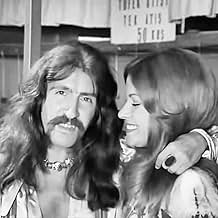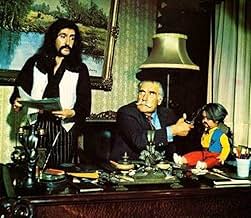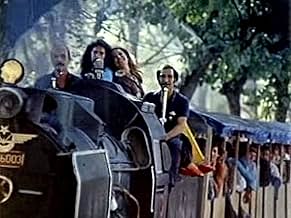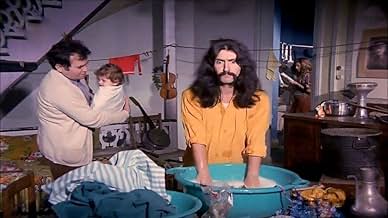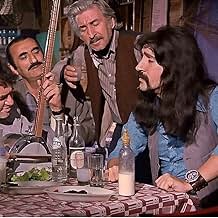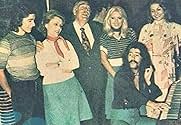In 1975, the sole raison d'être for the creation of "Baba Bizi Eversene" (Father, Make Us Marry) was to capitalise on the immense popularity of Baris Manco and Kurtalan Ekspres, the musical sensations of the era. Rival film companies had cultivated their own star power, churning out films that dominated the Anatolian box office, thus feeding the lifeblood of Yesilcam, the Turkish film industry. Erman Film, in a desperate gamble, took a monumental leap of faith with this production.
The grandest mansions of Istanbul were rented (locations previously graced by films like "Bizim Aile"), a few scenes were even shot on location in Izmir, and astronomical fees were paid to Baris Manco and Kurtalan Ekspres, who had never before (and would never again) accept film offers.
However, the film's Achilles' heel lay behind the camera. Oksal Pekmezoglu, a director with a less-than-stellar career both before and after this project, was placed at the helm. Pekmezoglu, whose trajectory began as an illustrator and later plunged into the realm of erotic films, left his mark on the film, even with the presence of the conservative Baris Manco in the cast.
The film possesses a semblance of a story, but the script is virtually nonexistent. It's essentially a Baris Manco concert thinly veiled as a narrative, complete with fourth-wall-breaking moments.
In essence, it's a quintessential Yesilçam production. It's worth noting that the voices of Erhan Yazicioglu and Sener Sen grace the film through dubbing, further solidifying its place in the annals of Turkish cinema.
The film's cinematography, while not groundbreaking, captures the essence of 1970s Istanbul with its vibrant colors and bustling streets. The soundtrack, featuring original songs by Baris Manco and Kurtalan Ekspres, is undoubtedly the film's saving grace. The music is infectious and memorable, and it's easy to see why it resonated with audiences at the time.
Despite its flaws, "Baba Bizi Eversene" remains a fascinating time capsule of Turkish pop culture in the 1970s. It's a testament to the power of star power and the enduring appeal of Baris Manco's music. While it may not be a cinematic masterpiece, it's a cultural artifact that offers a glimpse into a bygone era of Turkish cinema.


